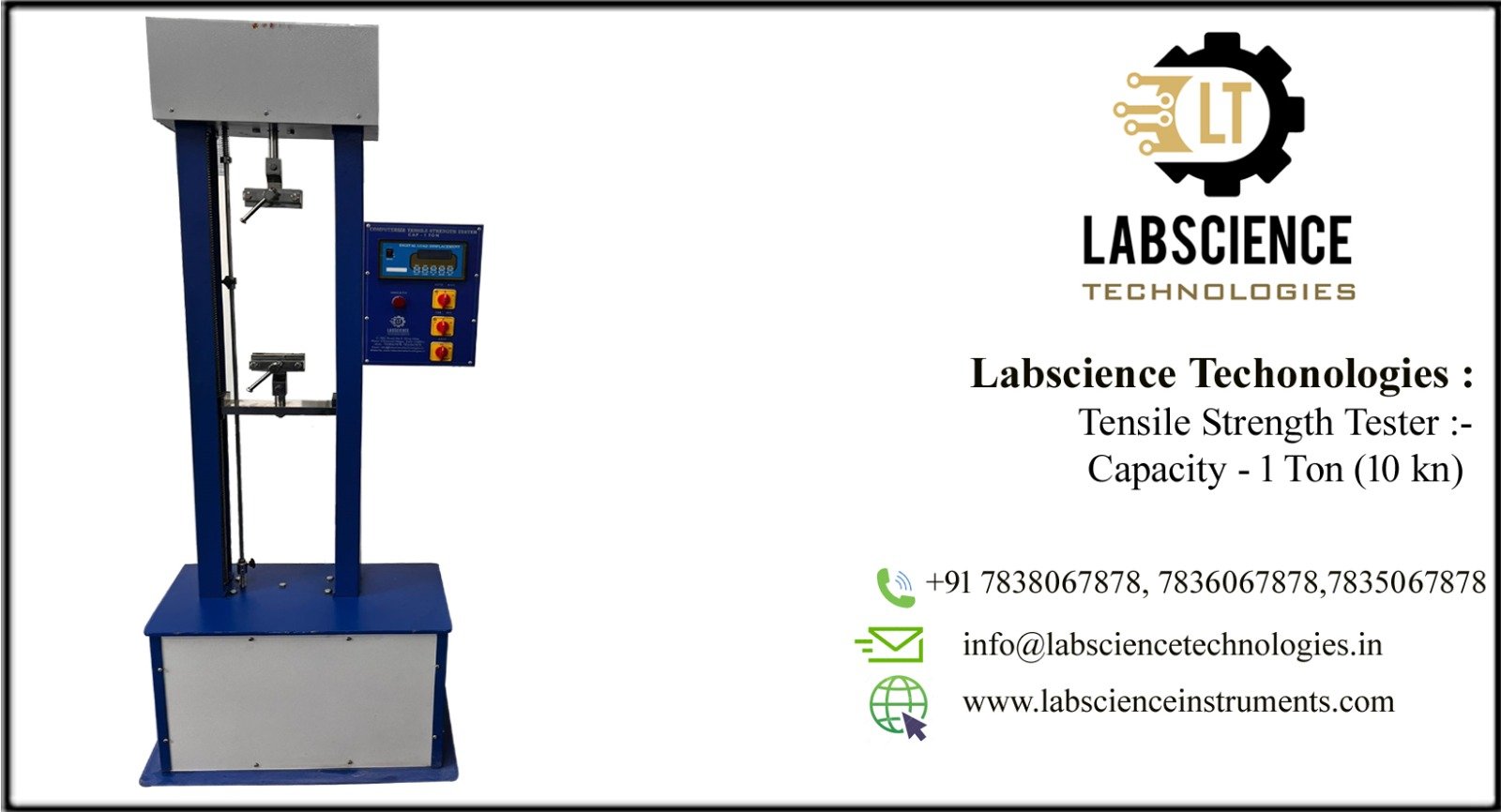Tensile strength tester
Tensile strength testing is an essential process in industries that deal with materials such as metals, plastics, textiles, and composites. A tensile strength tester measures the maximum force a material can withstand while being stretched. This article provides an overview of tensile testing machines, the factors influencing their prices, and the various applications they serve.
Introduction to Tensile Strength Testing
A tensile strength tester is a device used to evaluate the strength of materials under tensile load. The tensile strength testing equipment is designed to apply controlled tension to a sample until it fails. The results, which include measurements of the material’s tensile strength, elongation, and ultimate tensile strength, are used to assess the material’s performance in real-world applications.
Types of Tensile Testing Machines
There are several types of tensile testing machines available, each catering to specific industries and materials:
Universal Tensile Testing Machine: This versatile machine is widely used for testing various materials such as metals, plastics, textiles, and composites. It can perform not just tensile tests but also compression, bending, and shearing tests.
Digital Tensile Strength Tester: This type of tester provides precise digital readings of tensile properties, ensuring high accuracy. It is suitable for industries where precise data recording is essential.
Tensile Strength Tester for Plastics: This equipment is designed specifically for the plastics industry to test the durability and flexibility of plastic materials. It helps ensure that plastic products can withstand operational stresses.
Tensile Strength Tester for Metals: Metals require rigorous tensile testing to determine their ability to perform under stress in industries such as construction and automotive. These testers help ensure safety and reliability in structural materials.
Portable Tensile Strength Tester: For field applications, a portable tensile strength tester is ideal. It allows testing on-site for cables, textiles, or other materials that require immediate tensile assessment.
Importance of Tensile Testing Procedure
The tensile strength testing procedure involves placing a sample in the tensile tester and applying a load until it breaks. The test provides crucial data on the material’s tensile strength, elongation, and elasticity. Following standard procedures ensures that materials meet industry standards and regulations.
Applications of Tensile Testing
Tensile testing instruments are essential in quality control across various industries:
Tensile Strength Testing for Plastics and Polymers: In the packaging industry, it’s important to ensure that plastic and polymer materials can withstand different forces. Tensile test machines for polymers help assess the strength and flexibility of these materials.
Tensile Strength Testing for Metals and Composites: Construction and automotive industries rely on tensile strength testers for metals to evaluate the safety and durability of materials like steel and aluminum. Similarly, tensile test machines for composites are used to ensure that materials like carbon fiber meet safety standards.
Tensile Testing for Textiles: The textile industry uses tensile strength testers for textiles to assess the durability of fabrics. This ensures that fabrics used in clothing, industrial applications, or protective gear meet performance standards.
Tensile Testing for Cables: Electrical and structural cables are subjected to tensile strength testing to ensure they can handle the loads they are designed to carry.
Tensile Test Machine Prices and Calibration
The tensile test machine price varies depending on the type of machine, its load capacity, and features like digital readouts or extensometers. Machines that can handle heavy loads, such as those used for testing metals or composites, tend to be more expensive. Additionally, tensile test machine calibration is crucial for maintaining accuracy. Regular calibration ensures that the machine delivers reliable results in line with industry standards.
Specialized Tensile Testing Equipment
In addition to standard tensile testers, there are specialized machines tailored for specific materials:
Tensile Test Machine for Rubber: These machines assess the flexibility and tensile properties of rubber materials, commonly used in automotive and manufacturing industries.
Tensile Testing for Composites: Materials such as carbon fiber or fiberglass require high-precision tensile testers to accurately measure their tensile strength due to their unique properties.
Tensile Test Machine for Wood and Leather: These machines are designed to evaluate the tensile properties of organic materials used in construction, furniture making, and apparel.
Maintenance and Spare Parts
Like any mechanical equipment, tensile testing machines require regular maintenance to ensure longevity and performance. Tensile test machine manufacturers often provide spare parts and maintenance services to ensure that the equipment remains in optimal condition. Proper care and calibration extend the lifespan of these machines, ensuring consistent and reliable results.
Conclusion
Investing in the right tensile strength tester is crucial for industries that require precision and durability in their materials. Whether you are testing plastics, metals, textiles, or composites, the right tensile testing machine ensures product quality, safety, and performance. Regular tensile test machine calibration and maintenance keep the equipment in optimal condition, providing accurate results that meet industry standards.
Kindly fill this form to demand a call-back to from our client support boss with esteeming and details.
+91 7838067878
Call Now
+91 7838067878


Pingback: The Essential Guide to Tensile Strength Testers – jaunpury
yes
Pingback: Ultimate Tensile Strength: A Comprehensive Overview – jaunpury